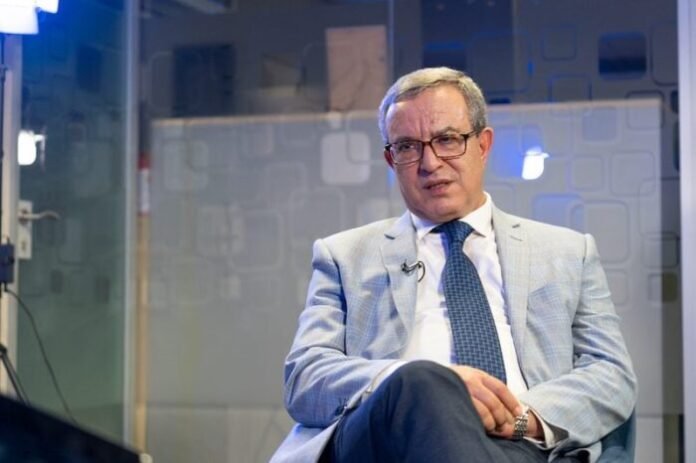The presence of former Minister Mohamed Aujar on the program “Talk with the Press” occurred at a political moment marked by a notable renewal of the discourse defending territorial unity. What stands out in this interview is not only the content of the ideas, but the way Aujar reorganized the map of actors involved in this dossier, moving away from the exclusive centrality of the state.
It was clear that Aujar was speaking from his position as an expert within international institutions and as an observer of the evolution of Moroccan diplomatic language. The discourse was not celebratory, but descriptive, presenting achievements without sliding into a discourse of final victory or a closed conclusion to the conflict.
1) Official diplomacy… A still-present center of gravity
Aujar emphasized that the Ministry of Foreign Affairs and the royal institution form the organizing framework of the dossier. But the key point was that Morocco’s international success no longer relies solely on legal and political advocacy, but on building the image of a stable state progressing calmly in an unstable environment.
The question arising here: Does the success of official diplomacy today stem from the strength of its arguments, or from the weakness of the opposing discourse, already exhausted globally?
2) Multiplying arms… From a single center to a network of influence
In discussing parliament, trade unions, and associations, Aujar did not offer a technical description, but a strategic observation:The new actors in advocacy are not a substitute for the state; they are its social extension.
This means the dossier is no longer a “government” dossier, but a political society dossier.
However, this expansion raises the question of cohesion: How can discourses be coordinated so that advocacy does not turn into parallel voices instead of a harmonious choir?
Aujar hinted that managing this diversity has become a diplomatic task in itself.
3) Latin America: The most indicative political laboratory
When Aujar spoke about Latin America, it was not merely a geographical reference.
It was an example of an arena that had been entirely favorable to the Polisario for decades.
Today, the shift in influence within the parliaments of that region is not a passing event, but the result of:
-
Gradual Moroccan presence
-
Building relationships with parties and labor movements
-
Dismantling the “victim” narrative in which Algeria invested
The question here opens a new horizon: Is this transformation permanent? Or is it contingent on a political moment subject to fluctuation with changing governments?
4) Civil society: From the position of recipient to that of actor
When Aujar cited civil initiatives and rights-based actions, he pointed to a fundamental transition:
It is no longer just about speaking on behalf of the state, but on behalf of the people living in the Sahara, particularly youth, women, and local actors.
The value here is not merely symbolic, but discursive:When a citizen living in Laâyoune speaks, their discourse is not received internationally as a political statement, but as a testimony of life. This was what had been missing from Morocco’s discourse in previous decades.
Open conclusion
What Aujar revealed in this interview is not just a depiction of reality, but a compass pointing to the next stage:Defending territorial unity is no longer a battle over borders, but a narrative battle.
The central question remains:How do we protect this accumulation from improvisation?
And can we move from multiple initiatives to a unified discourse strategy without erasing the diversity of actors?
The answer is still taking shape. But the interview showed that Morocco is today better prepared to manage these issues calmly, confidently, and with a mind open to change.
And this in itself is a transformation worthy of attention.


